SpringSecurity在单机环境下使用
SpringSecurity在单机环境下使用
参考
来源于黑马程序员: 手把手教你精通新版SpringSecurity
技术选型
SpringBoot2.1.3,SpringSecurity,MySQL,mybatis,jsp
初步整合认证第一版
创建工程并导入jar包
先只导入SpringBoot
<parent>
<groupId>org.springframework.boot</groupId>
<artifactId>spring-boot-starter-parent</artifactId>
<version>2.1.3.RELEASE</version>
<relativePath/>
</parent>
<dependencies>
<dependency>
<groupId>org.springframework.boot</groupId>
<artifactId>spring-boot-starter-web</artifactId>
</dependency>
</dependencies>提供处理器
@Controller
@RequestMapping("/product")
public class ProductController {
@RequestMapping
@ResponseBody
public String hello(){
return "success";
}
}编写启动类
@SpringBootApplication
public class SecurityApplication {
public static void main(String[] args) {
SpringApplication.run(SecurityApplication.class, args);
}
}测试效果
使用SpringBoot内置tomcat启动项目,即可访问处理器。

加入SpringSecurity的jar包
<dependency>
<groupId>org.springframework.boot</groupId>
<artifactId>spring-boot-starter-security</artifactId>
</dependency>重启再次测试
SpringBoot已经为SpringSecurity提供了默认配置,默认所有资源都必须认证通过才能访问。

那么问题来了!此刻并没有连接数据库,也并未在内存中指定认证用户,如何认证呢?
其实SpringBoot已经提供了默认用户名user,密码在项目启动时随机生成,如图:

认证通过后可以继续访问处理器资源:
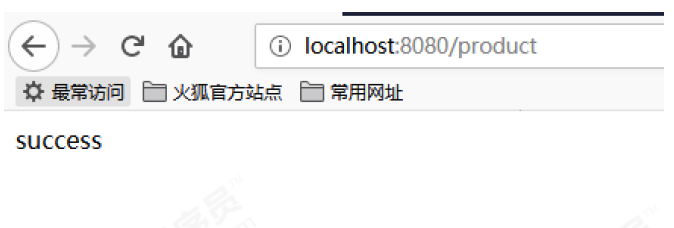
整合认证第二版
加入jsp,使用自定义认证页面
说明
SpringBoot官方是不推荐在SpringBoot中使用jsp的,那么到底可以使用吗?答案是肯定的!
不过需要导入tomcat插件启动项目,不能再用SpringBoot默认tomcat了。
我们不能 通过启动类的方式来进行启动了,因为它会不识别Jsp页面,必须导入jar包,然后更换方法
导入SpringBoot的tomcat启动插件jar包
<dependency>
<groupId>org.springframework.boot</groupId>
<artifactId>spring-boot-starter-tomcat</artifactId>
</dependency>
<dependency>
<groupId>org.apache.tomcat.embed</groupId>
<artifactId>tomcat-embed-jasper</artifactId>
</dependency>加入jsp页面等静态资源
在src/main目录下创建webapp目录
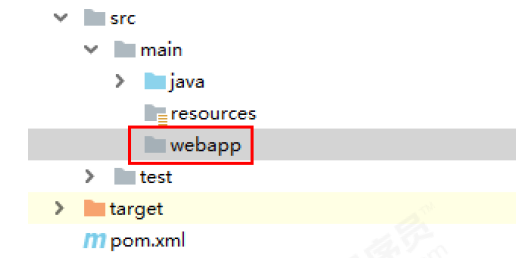
这时webapp目录并不能正常使用,因为只有web工程才有webapp目录,在pom文件中修改项目为web工程

这时webapp目录,可以正常使用了!
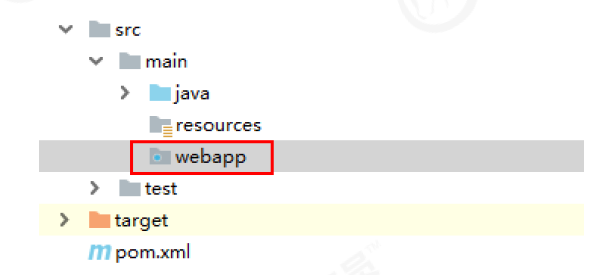
导入第一天案例中静态资源,注意WEB-INF就不用了哈!

修改login.jsp中认证的url地址
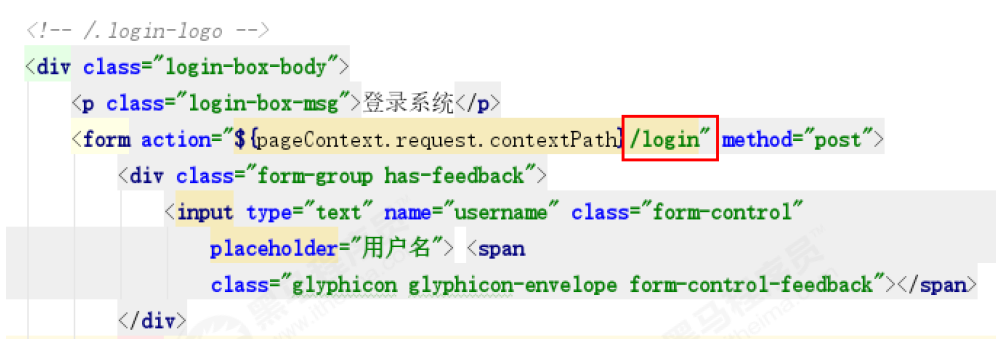
修改header.jsp中退出登录的url地址

提供SpringSecurity配置类
@Configuration
@EnableWebSecurity
@EnableGlobalMethodSecurity(securedEnabled=true)
public class WebSecurityConfig extends WebSecurityConfigurerAdapter {
@Autowired
private UserService userService;
@Bean
public BCryptPasswordEncoder passwordEncoder(){
return new BCryptPasswordEncoder();
}
//指定认证对象的来源
public void configure(AuthenticationManagerBuilder auth) throws Exception {
auth.userDetailsService(userService).passwordEncoder(passwordEncoder());
}
//SpringSecurity配置信息
public void configure(HttpSecurity http) throws Exception {
http.authorizeRequests()
.antMatchers("/login.jsp", "failer.jsp", "/css/**", "/img/**", "/plugins/**").permitAll()
.antMatchers("/product").hasAnyRole("USER")
.anyRequest().authenticated()
.and()
.formLogin()
.loginPage("/login.jsp")
.loginProcessingUrl("/login")
.successForwardUrl("/index.jsp")
.failureForwardUrl("/failer.jsp")
.and()
.logout()
.logoutSuccessUrl("/logout")
.invalidateHttpSession(true)
.logoutSuccessUrl("/login.jsp")
.and()
.csrf()
.disable();
}
}修改产品处理器
有页面了,就跳转一个真的吧!
@Controller
@RequestMapping("/product")
public class ProductController {
@RequestMapping("/findAll")
public String findAll(){
return "product-list";
}
}配置视图解析器
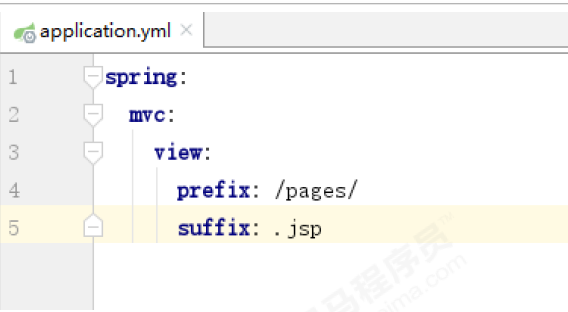
使用tomcat插件启动项目

测试效果
自定义的认证页面
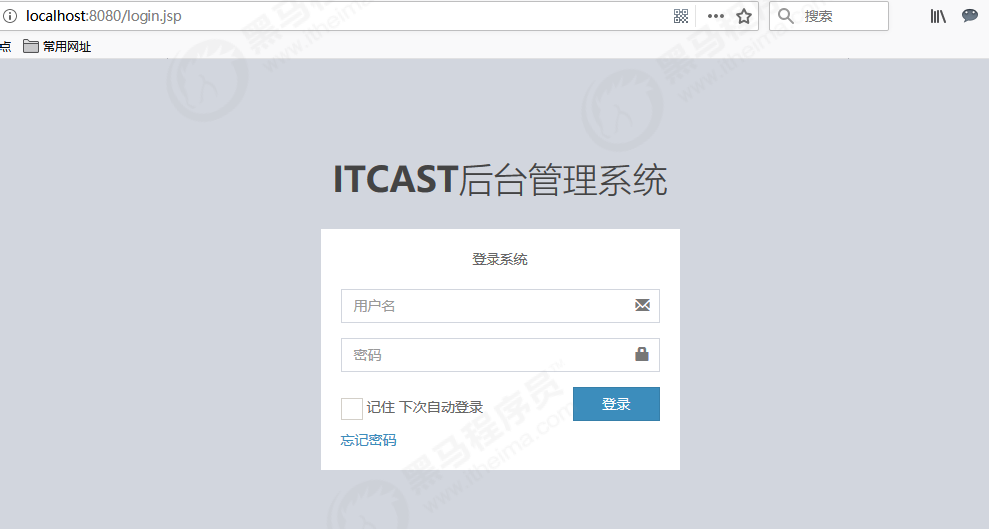
认证成功页面
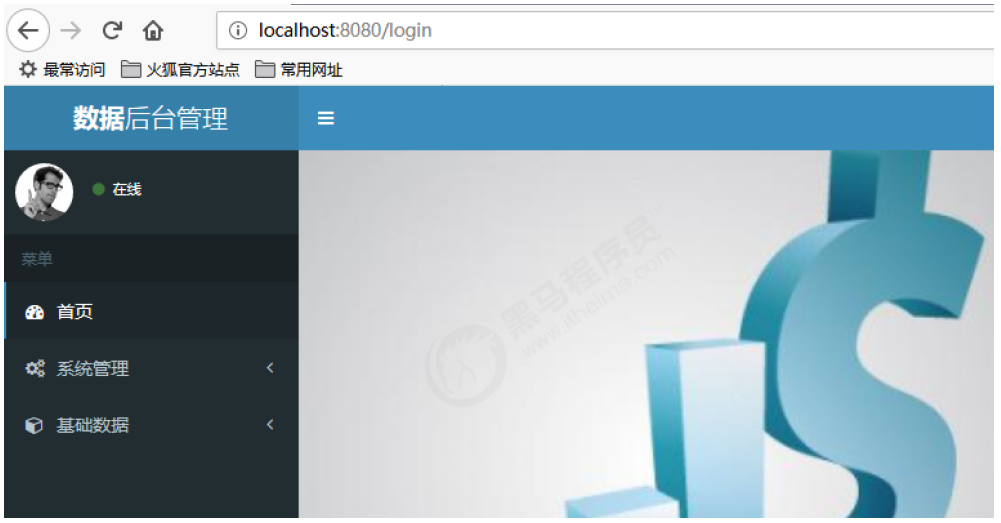
整合认证第三版【数据库认证】
数据库环境准备
依然使用security_authority数据库,sql语句在第一天资料里。
导入数据库操作相关jar包
<!--MySQL驱动包-->
<dependency>
<groupId>mysql</groupId>
<artifactId>mysql-connector-java</artifactId>
<version>5.1.47</version>
</dependency>
<!--springboot启动类-->
<dependency>
<groupId>tk.mybatis</groupId>
<artifactId>mapper-spring-boot-starter</artifactId>
<version>2.1.5</version>
</dependency>
<!--导入通用Mapper-->
<dependency>
<groupId>tk.mybatis</groupId>
<artifactId>mapper-spring-boot-starter</artifactId>
<version>2.1.5</version>
</dependency>在配置文件中添加数据库操作相关配置
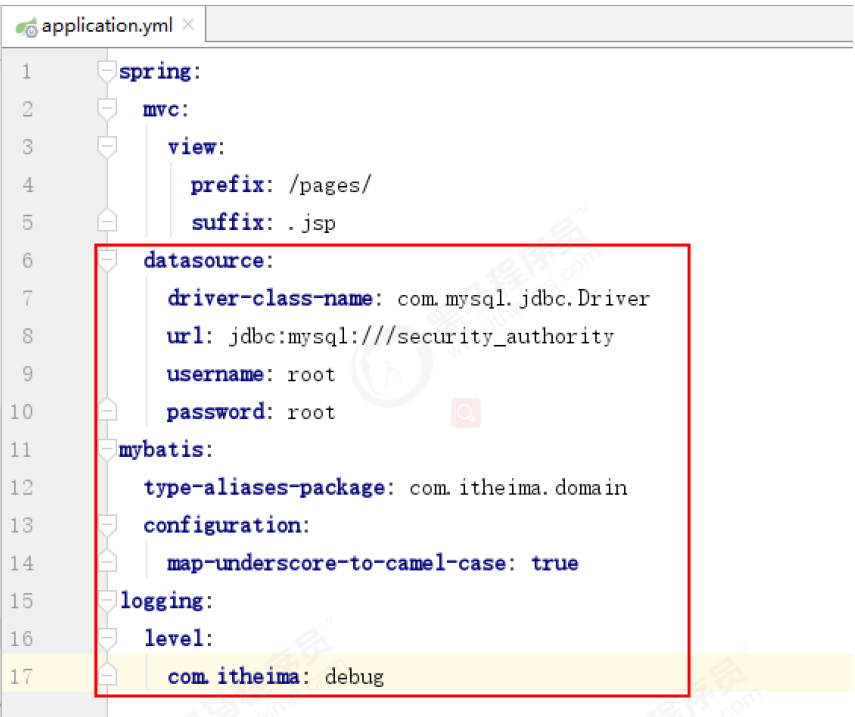
在启动类上添加扫描dao接口包注解
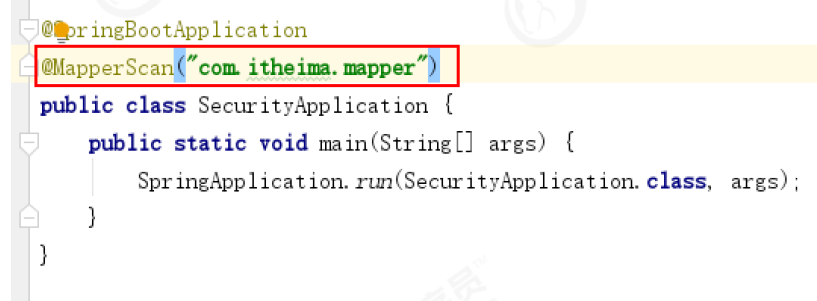
创建用户pojo对象
这里直接实现SpringSecurity的用户对象接口,并添加角色集合私有属性。注意接口属性都要标记不参与json的处理
@Data
public class SysRole implements GrantedAuthority {
private Integer id;
private String roleName;
private String roleDesc;
}创建角色pojo对象
这里直接使用SpringSecurity的角色规范,我们实现UserDetails的类型
@Data
public class SysUser implements UserDetails {
private Integer id;
private String username;
private String password;
private Integer status;
private List<SysRole> roles;
@JsonIgnore
@Override
public Collection<? extends GrantedAuthority> getAuthorities() {
return roles;
}
@Override
public String getPassword() {
return password;
}
@Override
public String getUsername() {
return username;
}
@JsonIgnore
@Override
public boolean isAccountNonExpired() {
return true;
}
@JsonIgnore
@Override
public boolean isAccountNonLocked() {
return true;
}
@JsonIgnore
@Override
public boolean isCredentialsNonExpired() {
return true;
}
@JsonIgnore
@Override
public boolean isEnabled() {
return true;
}
}提供角色mapper接口
public interface RoleMapper extends Mapper<SysRole> {
@Select("SELECT r.id, r.role_name roleName, r.role_desc roleDesc " +
"FROM sys_role r, sys_user_role ur " +
"WHERE r.id=ur.rid AND ur.uid=#{uid}")
public List<SysRole> findByUid(Integer uid);
}提供用户mapper接口
这里就用到了Mybatis的一对多进行操作
public interface UserMapper extends Mapper<SysUser> {
@Select("select * from sys_user where username = #{username}")
@Results({
@Result(id = true, property = "id", column = "id"),
@Result(property = "roles", column = "id", javaType = List.class,
many = @Many(select = "com.itheima.mapper.RoleMapper.findByUid"))
})
public SysUser findByName(String username);
}提供认证service接口
@Service
@Transactional
public class UserServiceImpl implements UserService {
@Autowired
private UserMapper userMapper;
@Override
public UserDetails loadUserByUsername(String s) throws UsernameNotFoundException {
return userMapper.findByUsername(s);
}
}在启动类中把加密对象放入IOC容器
@SpringBootApplication
@MapperScan("com.itheima.mapper")
public class SecurityApplication {
public static void main(String[] args) {
SpringApplication.run(SecurityApplication.class, args);
}
@Bean
public BCryptPasswordEncoder passwordEncoder(){
return new BCryptPasswordEncoder();
}
}修改配置类
@Configuration
@EnableWebSecurity
@EnableGlobalMethodSecurity(securedEnabled=true)
public class WebSecurityConfig extends WebSecurityConfigurerAdapter {
@Autowired
private UserService userService;
@Bean
public BCryptPasswordEncoder passwordEncoder(){
return new BCryptPasswordEncoder();
}
//指定认证对象的来源
public void configure(AuthenticationManagerBuilder auth) throws Exception {
auth.userDetailsService(userService).passwordEncoder(passwordEncoder());
}
//SpringSecurity配置信息
public void configure(HttpSecurity http) throws Exception {
http.authorizeRequests()
.antMatchers("/login.jsp", "failer.jsp", "/css/**", "/img/**", "/plugins/**").permitAll()
.antMatchers("/product").hasAnyRole("USER")
.anyRequest().authenticated()
.and()
.formLogin()
.loginPage("/login.jsp")
.loginProcessingUrl("/login")
.successForwardUrl("/index.jsp")
.failureForwardUrl("/failer.jsp")
.and()
.logout()
.logoutSuccessUrl("/logout")
.invalidateHttpSession(true)
.logoutSuccessUrl("/login.jsp")
.and()
.csrf()
.disable();
}
}大功告成尽管测试,注意还是用插件启动项目,使用数据库表中的用户名和密码。
整合实现授权功能
在启动类上添加开启方法级的授权注解
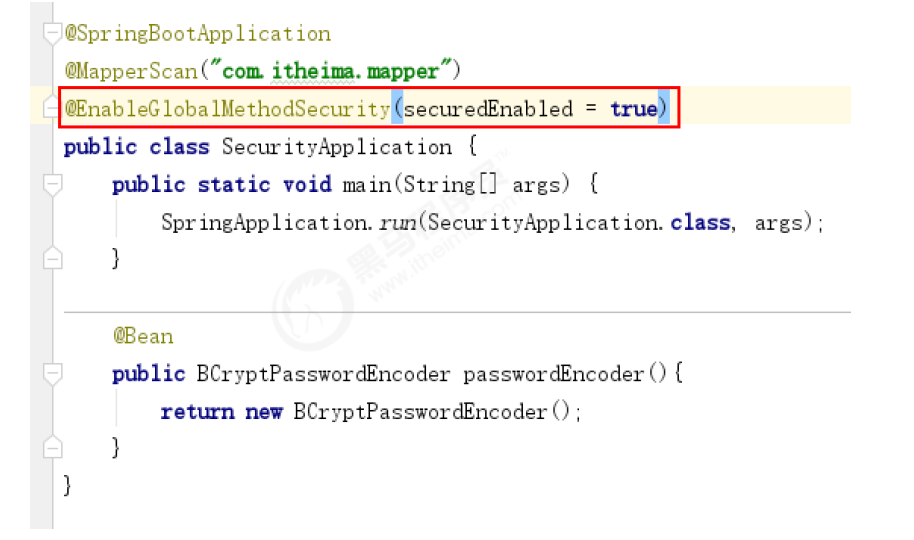
在产品处理器类上添加注解
要求产品列表功能必须具有ROLE_ADMIN角色才能访问!
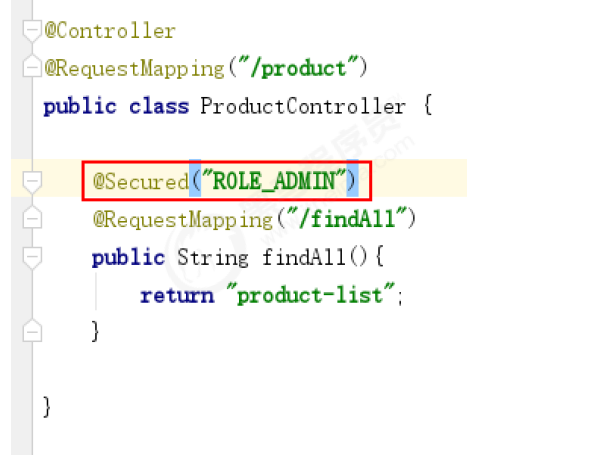
重启项目测试
再次访问产品列表发现权限不足
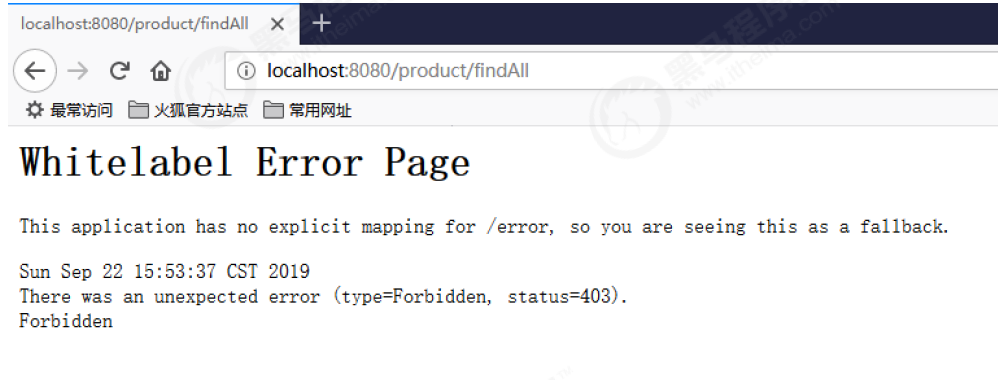
指定自定义异常页面
编写异常处理器拦截403异常
@ControllerAdvice
public class HandleControllerException {
@ExceptionHandler(RuntimeException.class)
public String exceptionHandler(RuntimeException e){
if(e instanceof AccessDeniedException){
//如果是权限不足异常,则跳转到权限不足页面!
return "redirect:/403.jsp";
}
//其余的异常都到500页面!
return "redirect:/500.jsp";
}
}再次测试产品列表就可以到自定义异常页面了










